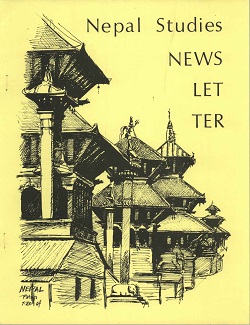Author Biography
Omer Aijazi is a Postdoctoral Fellow in Anthropology and Religion at the University of Toronto and Adjunct Assistant Professor of Anthropology at the University of Victoria. His research examines questions of violence and social repair in Kashmir and Northern Pakistan.
Abstract
What about insāniyat (humanity)? Or put differently, how are morality and ethics compelled and shaped in the pahars (mountainscapes) of Kashmir? insāniyat is an emotion and ethics that expresses interdependencies between people. Insāniyat is moral and ethical proclivity. It is not enforced by an external authority but inheres in human encounters. I explore the question of insāniyat with the help of Qari Safr, a village Imam in the pahars of Neelum valley of Pakistan-administered Kashmir. Devoted to the circulation of an Islamic-informed integrity of life, I read Qari Safr’s aspirations for himself and his community as extensions of wider struggles for Kashmir. I juxtapose his strivings to regain and nurture insāniyat with the multiple forms of violence which shape his life. Qari Safr helps us appreciate moral and ethical striving as a political project, and his work towards an imagined, utopic destination (where insāniyat is commonplace) as emblematic of Kashmiri futurities which are insistences for something more—both within and outside the realm of possibility and articulation. insāniyat, as a lens, helps illuminate moral and ethical striving in a way that does not lend itself only in relation to state-based violence or directional responses to it. This, in turn, has the potential to open conversations on decolonial, rather than only postcolonial, notions of sovereignty. Through the use of narrative, parallel storylines, photographs, and recipes, the paper brings into purview the diffuse nature of violence in Kashmir’s pahars and its saturation of life therein. It attempts to think about Kashmir and its people on their own terms. In doing so, it pays attention to the ethical, ontological, and epistemological aspects of thinking and writing. In its attentiveness to ethnographic emergence, the paper contributes to the creation of diverse epistemic and discursive spaces where Kashmir (and Kashmiris) are not diminished by available language.
Acknowledgements
The research was supported by Shehzad Aslam, Nusrat Jamal, Fawad Aslam, Saeed Khan, Ambreen Khan, Mubashir Nawaz Khan, Muhammad Shoaib, Aurangzaib, and Abdul Shakoor. Sukhi Development Foundation and Haashar Association provided guidance and logistical support. Funding was provided by the Social Sciences and Humanities Research Council of Canada; UBC Public Scholar Initiative; University of Toronto; IDRC; UN OCHA; and the Pakistan Strategy Support Program. Earlier versions of this manuscript benefited from discussions at the ‘Mapping Emerging Scholarship on South Asia’ conference at LUMS, Lahore, Pakistan and the seminar series at the National Institute of Pakistan Studies (NIPS), QAU, Islamabad, Pakistan. The author thanks Haley Duschinski and the two anonymous reviewers for their valuable feedback and suggestions.
Creative Commons License

This work is licensed under a Creative Commons Attribution-Noncommercial-No Derivative Works 4.0 License.
Recommended Citation
Aijazi, Omer. 2020. What about Insāniyat? Morality and Ethics in the Pahars of Kashmir. HIMALAYA 40(1).
Available at:
https://digitalcommons.macalester.edu/himalaya/vol40/iss1/8


